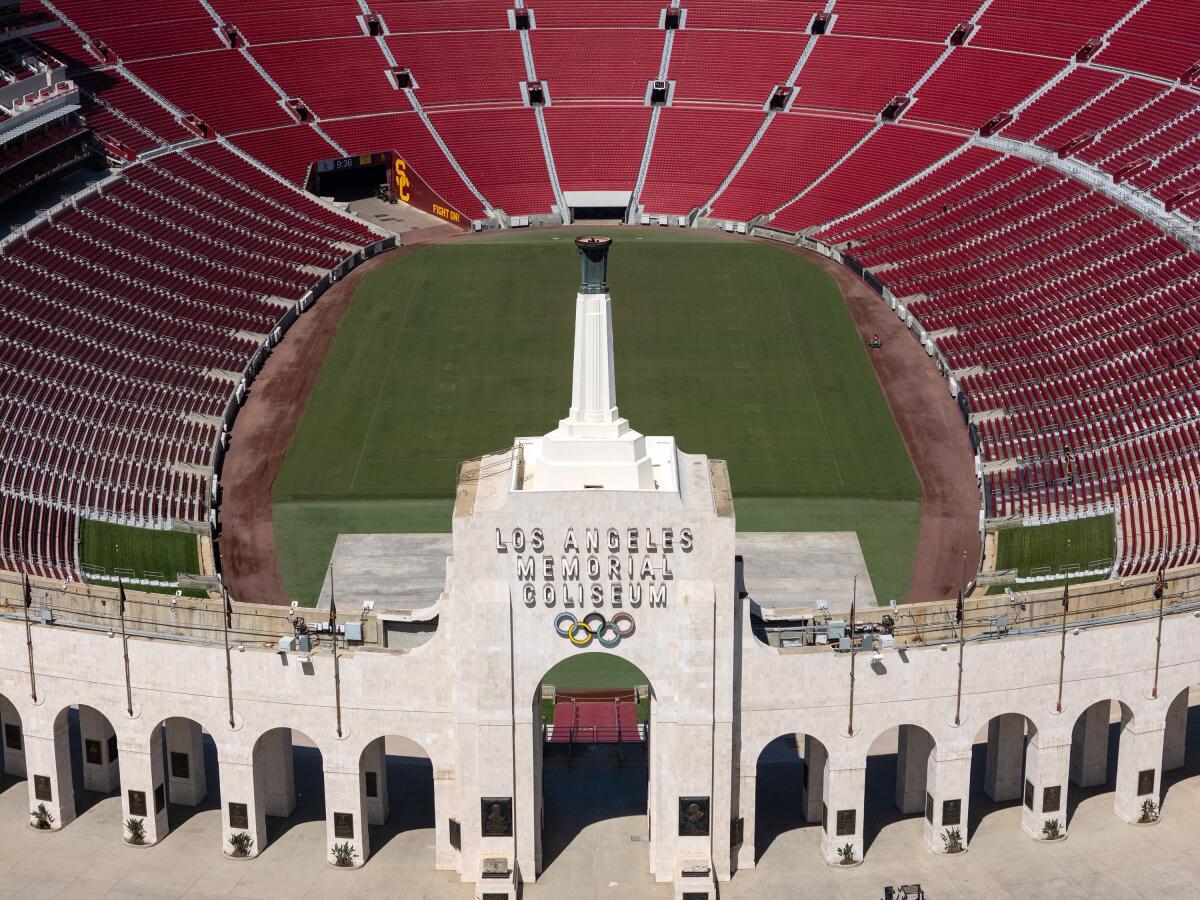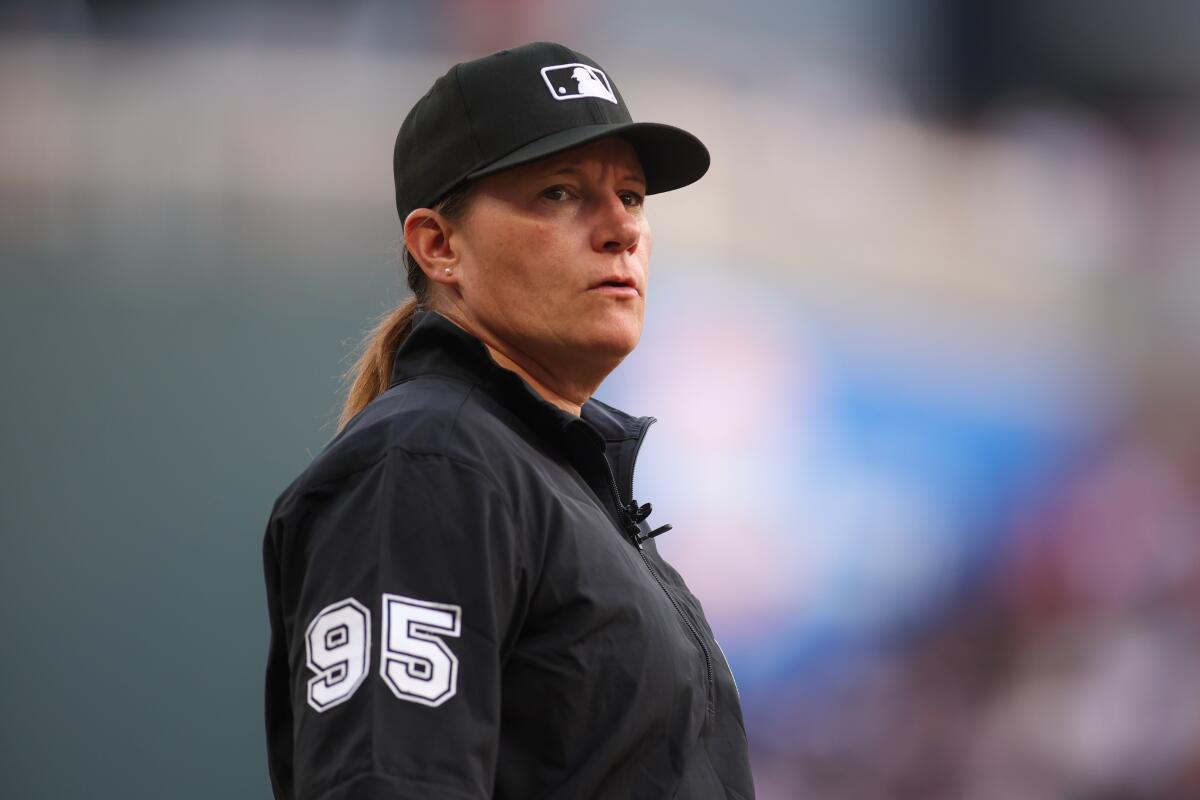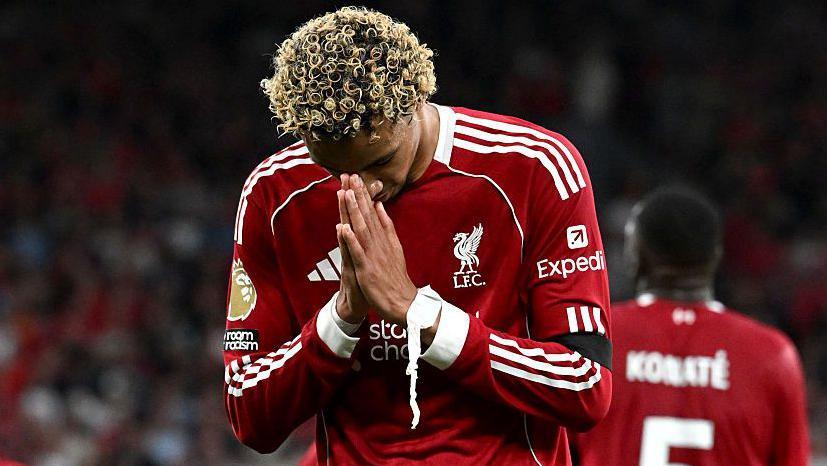The biggest — and most expensive — hurdle for most Olympic planning is construction. L.A., which touted its multitude of existing venues during its initial bidding process, is already ahead of the curve.
“From where I sit, they’re probably better prepared than any city has ever been,” said Payne, who led the IOC’s marketing for 20 years and advised on the successful host bids for the 2012, 2016 and 2028 Games.

An aerial view of the Los Angeles Memorial Coliseum, which will co-host the L.A. 2028 Olympics opening ceremony and track and field competition.
(Myung J. Chun/Los Angeles Times)
But the next three years will not be without concerns, said Jules Boykoff, a political science professor at Pacific University and longtime Olympic scholar.
A ballot measure proposed by organizers with the hotel workers union could affect construction for the temporary venues by requiring a citywide vote.
The Olympics, scheduled to open on July 14, 2028, will take place during wildfire season.
While LA28 has promised to cover all Games operational costs, the city has still pledged funds for transportation and infrastructure improvements that will remain after the torch is extinguished and will be liable for the first $270 million in overruns.
Then there’s the federal government.
“The federal government is necessary for security, funding and transportation, but Trump is “extraordinarily erratic,” Boykoff said. While signing an executive order to establish an Olympic task force, the president also took a swipe at Mayor Karen Bass, calling her “not very competent.”
“Typically there’s coordination between the local, city government, where the Olympics are being hosted, and the federal government, positive, collaborative energy,” Boykoff said. “And there’s not that at all with this.”



